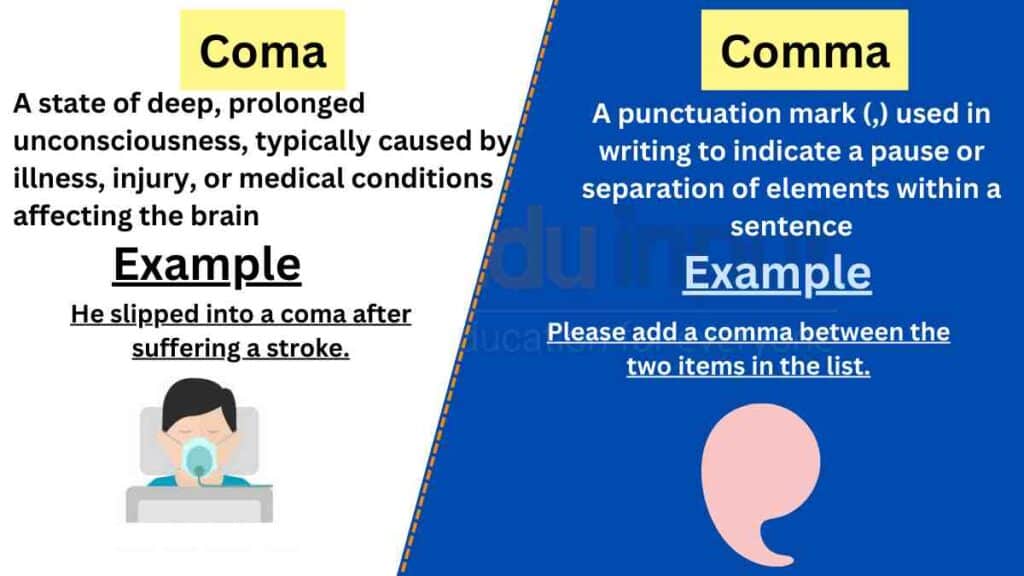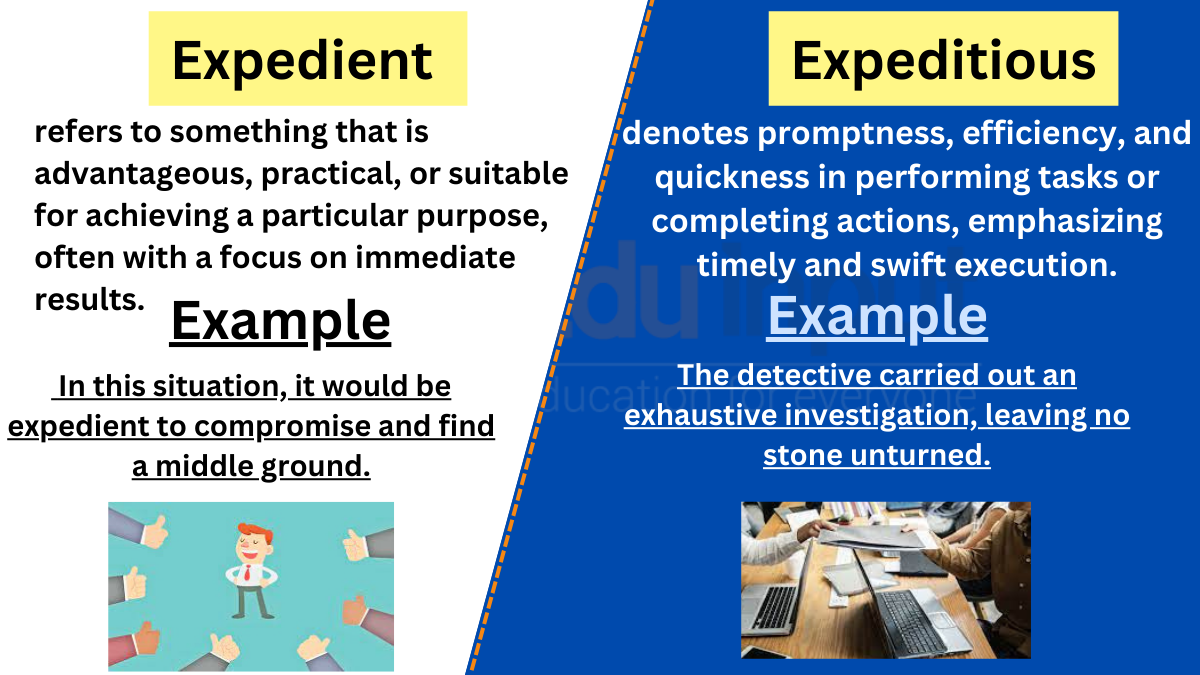Comma vs Coma-Difference Between and Examples
In English, words with similar spellings or pronunciations can have vastly different meanings, leading to confusion in their usage. “Coma” and “comma” are words that, despite their similarities, have distinct definitions and functions.
In this article, we will explore the differences between “coma” and “comma” to gain a better understanding of their meanings and usage. By understanding that “coma” refers to a state of prolonged unconsciousness, while “comma” is a punctuation mark used in writing, we can use these words accurately in various contexts.
Let’s delve into the contrasts between “coma” and “comma.”

Meanings and Examples
Coma Meaning
Noun: Coma is a state of deep, prolonged unconsciousness, typically caused by illness, injury, or medical conditions affecting the brain.
Coma Examples
- The patient has been in a coma for several weeks following a severe car accident.
- He slipped into a coma after suffering a stroke.
- The child remained in a coma after a traumatic brain injury.
- The doctor monitored the patient’s vital signs while in a coma.
- She woke up from her coma to the relief of her family and friends.
Comma Meaning
Noun: The meaning of a Comma is a punctuation mark (,) used in writing to indicate a pause or separation of elements within a sentence.
Comma Examples
- Please add a comma between the two items in the list.
- The author used a comma to separate the clauses in the complex sentence.
- It is important to use a comma before a coordinating conjunction in a compound sentence.
- She placed a comma after the introductory phrase to clarify the sentence structure.
- The editor suggested adding a comma to enhance the clarity of the sentence.
Differences between Coma and Comma
| Criteria | Coma | Comma |
| Meaning | State of prolonged unconsciousness | Punctuation mark indicating pause or separation |
| Part of Speech | Noun | Noun |
| Pronunciation | ˈkoʊmə | ˈkɑːmə |
| Usage | Describing a medical condition | Indicating pauses or separating elements in writing |
Usage in a Paragraph
After the accident, the victim was rushed to the hospital and slipped into a coma. The doctors closely monitored her vital signs and kept her in a medically induced coma to aid in her recovery. Meanwhile, her family anxiously awaited any signs of improvement.
In her brother’s written update to concerned relatives, he carefully used appropriate punctuation, ensuring to include a comma after each significant piece of information. The comma helped clarify the sequence of events and provided the necessary pause for readers to comprehend the message effectively.
Understanding the distinctions between “coma” and “comma” allows us to use these words correctly in their respective contexts. “Coma” refers to a state of prolonged unconsciousness, typically caused by illness or injury affecting the brain.
On the other hand, a “comma” is a punctuation mark used in writing to indicate pauses or separate elements within a sentence. By recognizing the difference between these terms, we can ensure clear and precise communication in both medical discussions and written expressions. Whether discussing medical conditions or crafting written works, being mindful of the distinction between “coma” and “comma” contributes to effective and accurate communication.







Leave a Reply